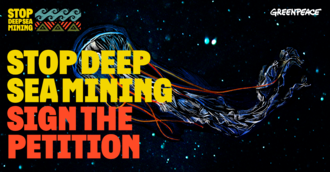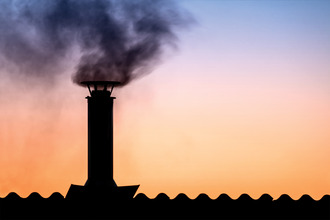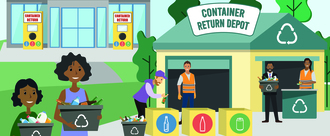-
Use wood chip not lignite coal to heat Te Whatu Ora Southern hospital!Health is the largest carbon emitter in public sector- with pollution affecting people’s health. Greenhouse gas emissions in Te Whatu Ora Southern are high compared with other major Te Whatu Ora regions. Actually Nitrogen dioxide emissions were three times that of other Te Whatu Ora regions. Wood chips would reduce current health impacts of burning lignite ( coal), particularly in South Invercargill. Trials with wood chips at Te Whatu Ora Southern 2 years ago show these are able to be burned in the present boiler. There are plentiful local sources of woodchip to fuel the hospital burners. A lot of this is currently burnt inefficiently in farm windrows, causing further air pollution. This could be repurposed for the hospital. People in South Invercargill took up the Environment Southland free loan scheme to change from coal fires to clean energy options that have improved air quality. We are calling on Te Whatu Ora Southern to do the same and change to wood chips with urgency! Petition organised by Jenny Campbell & Coal Action Murihiku - please contact Jenny by clicking her name at the top of the petition to discuss. For more info on the issue: https://www.newsroom.co.nz/coal-switch-a-slow-burner-for-hospitals200 of 300 SignaturesCreated by Jenny Campbell
-
Clean up toxic dump sites on horticultural landOld toxic waste dumps are all over New Zealand, including Auckland. Illegal tip sites in Auckland contain contaminants like pesticides, oil from machinery, refrigerants, household waste, old plant equipment etc which is leaking into estuaries then into rivers which flow into the Waitemata and other Auckland harbours. Horticultural sites especially, used and dumped stores of chemicals. Old dumps weren’t necessarily sealed properly and risk leaching into the environment, especially now with more extreme weather events. Auckland has old farms, wineries, and orchards that used toxic chemicals as pesticides and fungicides, in the decades before proper controls. It is important to manage these old dumps to protect our fresh and coastal waters and flora and fauna from contaminated waste leakage. We call on the council to review historic and current horticulture sites in the region, whether still operational or not, and investigate the sites for contaminated waste. This can be done and funded as part of the next Unitary Plan review. Where they find a toxic dump Auckland Council needs to take action. They could do this in a number of ways: 🌱 Urgent remediation of existing sites 🌱 Give the owners an ultimatum to clean it up, or the council/ government will appoint contractors to do the work, at their expense. 🌱 Ask people to report toxic dumps through an anonymous phone line 🌱 Offer a six month grace period for owners of land with private dumps to come forward without penalty There should be penalties for the owners of private dumps who do not disclose contaminated sites on their land. People who buy land in good faith and subsequently discover contamination, should be able to remove the contaminated waste when found, at the cost of the previous owners who passed the problem on, and those people be liable for penalties. Until old dumps are cleaned up then they will sit there doing damage to ecosystems. If they remain on site without people knowing they also risk human health. https://toiteora.govt.nz/public/contaminated-land/ https://www.thomasconsultants.co.nz/what-is-a-contaminated-site/20 of 100 SignaturesCreated by Mark Jensen
-
Update the Advertising Standards Code for a Carbon Zero 2050The popularity of light utility vehicles and SUVs continues to be on the rise, driven by advertising. Why is this an issue? Well, such vehicles are heavier, often have diesel engines and are less fuel-efficient, therefore meaning that increased sales of them compared to lighter vehicles is linked directly to greater emissions of carbon dioxide, nitrogen oxides and other pollutants across the globe. Climate change and declining air quality are crises we must address urgently. To prevent them from further threatening public health, we should be encouraging behaviours that ensure a safe future for our descendents on this planet. At the least we should be encouraging the uptake of fuel-efficient or zero-emission forms of transport, rather than the opposite. There are a multitude of similarly profitable, alternative products (take electric utes for example) that manufacturers can produce instead that would help meet Aotearoa’s goal of reducing net emissions of all greenhouse gases (except biogenic methane) to zero by 2050, so therefore there is no valid reason for harmful goods to be promoted positively through advertising. To hold vehicle producers socially responsible and thereby pursue a healthier future for the planet and all people, we are asking for just one small regulation to be added to the Advertising Standards Code. Notes: This petition ask is based on a recommendation made in both a UK study by Boyle et al. (2021) and a study by Woodward, Wisniewski and Wild presented to the Transportation 2021 Conference. 8 of the top 10 best-selling new vehicles in Aotearoa are light trucks (utes and SUVs). https://www.greaterauckland.org.nz/2021/06/02/the-rise-of-the-urban-light-truck-what-to-do-about-it/ Photo credit: https://www.greaterauckland.org.nz/2021/06/02/the-rise-of-the-urban-light-truck-what-to-do-about-it/263 of 300 SignaturesCreated by Cassie Wood
-
Don’t burn our future: Stop the NZ biofuels obligationBecause growing extra food crops to use for fuel, which is what this policy would cause, drives the destruction of the natural world, will worsen the impacts of climate change and increase the costs of both food and fuel. We are calling on the Government to drop plans for the proposed biofuels obligation because of the overwhelming evidence that: 🌏 Similar biofuel directives around the world have caused massive net increases in greenhouse gas emissions compared to using regular fuel. EU Biofuels policy has acknowledged this, but so far the EU policy response of Sustainable Source Certification has not been successful. 🌏 Growing the feedstocks for biofuel drives tropical deforestation, destroys biodiversity, increases emissions and deprives indigenous people of their land and livelihoods. 🌏 Biofuel obligations drive up food prices, as the majority of biofuels are made from food and feed crops. Food price increases worsen living conditions for the most vulnerable people around the world. 🌏 Non-food ‘second generation’ biofuels, or those derived from food waste are not available in the necessary volumes, or at all. Introducing a biofuels obligation will not change this, as fuel suppliers will naturally try to meet the obligation at the lowest possible cost.* As well as all this, introducing an unsustainable biofuel directive will waste time and resources that could be directed to meaningful climate action. Join our call on the government to drop its plans for the biofuels obligation. We also call on the government to focus on addressing transport and energy emissions using methods that are proven to work, such as renewable energy, electrification, increased public and active transport, rail freight, coastal shipping and demand reduction policies. We also support policies that are likely to be effective in developing a sustainable wood waste-to-liquid fuel industry in New Zealand, as part of a comprehensive and co-ordinated national energy strategy. Low Carbon Kāpiti is a grassroots community organisation and climate advocacy group that hosts the Don’t Burn Our Future campaign. More on this topic from Don’t Burn Our Future: https://www.greaterauckland.org.nz/2022/07/11/biofuels-in-new-zealand-a-solution-or-a-problem/ https://lowcarbonkapiti.org.nz/wishing-for-fairy-dust-why-the-nz-biofuels-obligation-is-the-worst-kind-of-magical-thinking/ *Government estimates that second generation biofuels from wood waste will cost 2 - 4 times more than conventional, food-based biofuels, and will not be available in the short or medium term. Local supplies of food waste such as used cooking oil and tallow from meat processing are too small and difficult to secure given the demand for them from overseas.3,124 of 4,000 SignaturesCreated by Jake Roos
-
Public Submission: Save the Denniston Plateau from opencast coal miningThe Department of Conservation has begun its review and reclassification of the status of its “stewardship land”, starting on the West Coast. This includes the Denniston Plateau, which has already been partially destroyed by the mothballed Bathurst Resources’ Escarpment coal mine. The rest of the plateau is of high conservation value, and it, along with nearby Deep Creek, also contains some of the last unmined coking coal measures in the country, with mining permits held by BT Mining - a company set up by Bathurst Resources and Talley’s. Bathurst recently had to close a coal mine in Canterbury because it had breached so many consents. The coal mining industry wants these areas to be classified “Conservation Park”, which is the current recommendation, but in the words of mining lobby group Minerals West Coast: “Some reclassification categories - such as "conservation park", would still allow for mining under existing legislation.” Right now, the draft classifications for these areas are indeed only for "Conservation Park". The Denniston Plateau contains a unique sandstone plateau and rare wetlands, full of endangered and endemic creatures like our giant snail and the unique Avatar Moth, found nowhere else in the world. Also present are the great spotted kiwi and fern birds, and a rare skink found nowhere else, along with a giant snail. Experience in this part of the world shows us that any claims by a coal company that they will “rehabilitate” the land after mining are empty promises. These unique areas would be destroyed, the streams polluted, and the animals in them gone. The world is moving away from coal. We are in the midst of a climate emergency and we must protect our most precious areas both from the impacts of climate change - and from being dug up for coal that will only increase emissions at a time when we need to reduce them. ⏩ BELOW is the public submission to sign onto: Dear Panel members West Coast, The three areas we are concerned about all sit atop considerable coal measures, coal that if burned would contribute to climate change, at a time when governments around the world are attempting to reduce emissions to get the world onto a 1.5˚C warming pathway. We note the government’s Emission Reduction Plan (ERP) specifically refers to “working with nature” to help reduce emissions as part of solving our climate crisis: “Looking after these forests is one of the most important contributions Aotearoa can make to combating global climate change. We also have a significant opportunity to develop native forests that both act as long-term carbon sinks and support biodiversity…” ★ We therefore strongly recommend a much stronger protection regime for the following areas: 🌏 1. Kaw_10 - Waimangaroa - Granity This area contains Deep Creek, a highly biodiverse area, with coal measures under the land. Given the main habitat of the Powelliphanta augustus was obliterated by the Stockton Mine, and rehabilitation efforts have failed, and the majority of the remainder of this species are still living in fridges, it is absolutely critical to preserve, in perpetuity, this last remaining habitat of this critically endangered species. The very nature of the DOC description: “high ecological values” and “overwhelmingly natural and largely intact” brings into question its lowly recommended classification of Conservation Park. A scientific reserve would preserve this area in perpetuity, especially as it would preclude the area from being stripped bare in an opencast coal mine. We therefore recommend that this be classified as an ecological area (under Part 4, S21 of the Conservation Act) with a scientific reserve on the remainder of the Stockton Plateau (sandstone pavement) including Upper Deep Creek/Whirlwind Creek (under Part 3, S21 of the Reserves Act) 🌏 2. Kaw_17-Mount Rochfort, Old Denniston School Site Again, we consider the recommendation of “Conservation Park” is in contradiction to the high biodiversity values of the area. The great spotted kiwi and weka are both found here, along with the Avatar Moth, a species unknown anywhere else in the world, and only identified in 2012. It is also home to the Denniston skink, another species found nowhere else, and the giant snail Powelliphanta Patrickensis We consider this biodiverse area must be protected, not least from being stripped bare by a coal mine, which would likely render at least some of these species extinct. The Denniston plateau contains valuable wetland peatland areas found nowhere else. Not only should they be protected from coal mining, but we note the Government’s Emissions Reduction Plan specifically points to a strategy of wetland and biodiversity protection as part of our climate strategy and to protect them as valuable carbon sinks. We recommend that the Denniston plateau component be declared a Scientific Reserve and that the remainder be classified as an ecological area. We also recommend that the Old Denniston School area be declared as an Historic Reserve (under Part 3, S18 Reserves Act) 🌏 3. KAW_26 - Ballarat Again, we find it odd the recommended classification is only "Conservation Park", given the “high landscape and ecological value” supporting “rare and distinct species.” We recommend that Conservation Area Ballarat be classified as an ecological area. Lastly, and importantly, we also make a wider recommendation that the Government changes our legislation covering these areas: the Reserves Act, the Conservation Act, and the National Parks Act, so they all honour and respect Te Tiriti O Waitangi - the Treaty of Waitangi. Such changes should reflect the rights of Māori to be able to access these areas for cultural purposes such as mahinga kai and medicinal plants for rongoā - without having to seek permission. Ngā mihi https://www.youtube.com/watch?v=ByRGSD_ijh42,238 of 3,000 SignaturesCreated by Coal Action Network Aotearoa
-
Open submission: Refuse Beach Energy Drilling ConsentAotearoa is the global seabird capital and home to over half of the world’s marine mammal species. The South Taranaki Bight is a hot spot, hosting six endangered species, one vulnerable species and 18 other species of marine mammals with too little data to even assess. We also have a genetically distinct Blue whale population in the Bight. Kororā, the Little penguin sometimes travel here all the way from Marlborough Sounds to feed. Fossil fuel mining threatens entire marine ecosystems and contributes to ocean acidification and deoxygenation. There are also risks to kai moana and other traditional food gathering on the coast. Drilling and discharging harmful substances in such an important area is irresponsible. Beach Energy Resources NZ (Kupe) Limited has lodged applications with the Environmental Protection Authority (EPA) for a marine consent and a marine discharge consent for activities associated with development drilling of up to two wells at the existing Kupe Wellhead Platform some 30km off Manaia, South Taranaki. Climate Justice Taranaki is making a submission to request the consents be declined. 🔥 Critically, we are in a climate emergency. Getting off fossil fuels is crucial. There is no excuse to drill for more oil or gas when the window for reducing emissions to minimise climate catastrophes is closing. We need to reduce our energy demand fast and transition onto sustainable renewable energy instead. It is ludicrous that the current EEZ regulations do not allow the consideration of impacts on the climate from proposed activities. We are requesting the EPA Board of Inquiry to refuse all of Beach Energy's consent applications associated with its planned drilling program at the Kupe field. Please join us.2,738 of 3,000 SignaturesCreated by Climate Justice Taranaki
-
Stop deep sea miningThe deep sea is a treasure of biodiversity and home to untold wonders and possibilities. Right now, mining companies from around the world are trying to plunder these pristine ocean depths, exploring the deep waters of the Pacific and developing technologies to exploit the seafloor. https://www.youtube.com/watch?v=OWlBLjVDV8M But we can stop them before it’s too late. Acting now will keep the lid on this destructive industry, preserving the health of the ocean and people’s way of life. Many of our Pacific neighbours are calling for a moratorium to protect their waters from deep sea mining, but the New Zealand Government has failed to speak out against this dangerous industry. It’s time for New Zealand to take a stand. Join our call on the New Zealand government to support a ban a global ban on deep sea mining. Sign and share this urgent petition.70,728 of 75,000 SignaturesCreated by Greenpeace Aotearoa

-
Ban toxic coal firesGood air quality is essential to health and wellbeing. Although we on the West Coast enjoy a beautiful natural environment, many areas (including some outside the Reefton air-shed) are prone to low air quality in winter from the burning of coal in many of our homes. Toxic coal smoke is extremely harmful for our environment and people's health. Air quality in West Coast urban areas is being significantly compromised by burning coal for domestic heating in winter. Coal fires are used by 35 percent of the properties in the Buller region and 41 percent in the Grey region (compared to only 4% nationally). Air pollution can affect people’s health, especially their heart and lungs – and can even lead to early death. Particulate matter causes most of the health effects from air pollution. Wood and coal fires are the largest contributor of human made particulate matter (PM10) in New Zealand. The West Coast Regional Council (WCRC) has only one permanent air quality monitoring site, located in Reefton. Mitigation and adaptation to climate change is the key challenge facing us all. Carbon dioxide is by far the largest contributor to global greenhouse gases. It lasts in the atmosphere for many thousands of years, continuing to warm the temperature. Coal is the single biggest source of climate changing CO2 pollution and the biggest risk to the future. Of the fossil fuels left in the ground and available to burn, 79% of the global warming potential is from coal. Beside CO2, burning coal releases sulphur dioxide and nitrogen oxides into the air, which globally create acid rain and smog. To avoid the catastrophic impacts of climate change we need to keep global temperature rise below 2ºC (compared to pre¬industrial levels). To do this, global greenhouse gas emissions must peak by 2020 and from there go down to zero. Coal is the dirtiest fuel we could be burning. The small number of coal users means getting rid of coal is an easy solution. Let’s ban it now! This is an issue important to us and will affect our votes in the 2022 local elections. 🔥 Act now for the health of the environment and the health of the people living on the West Coast and Buller regions. Sign and share our petition! 🔥 Notes Proportion of Households Using Wood and Coal fires as a Source of Home Heating https://ehinz.ac.nz/assets/Factsheets/Released-2015/EHI13-14-ProportionOfHouseholdsUsingWoodAndCoalasASourceOfHomeHeating1996-2013-released201501.pdf Submissions on air quality https://www.wcrc.govt.nz/repository/libraries/id:2459ikxj617q9ser65rr/hierarchy/Documents/Publications/Regional%20Plans/Regional%20Policy%20Statement/Hearing/Chapters/Chapter%2010%20-%20Air%20Quality.pdf https://coalaction.org.nz/coal-facts West Coast - State of the Environment 2018 https://www.wcrc.govt.nz/repository/libraries/id:2459ikxj617q9ser65rr/hierarchy/Documents/Environment/State%20of%20Environment/SOEDocument_v12.pdf155 of 200 SignaturesCreated by Svetlana Cohen
-
Don’t delay New Zealand’s insulation standardsMaking our homes cosy, snug places by improving their insulation will help to improve our health, reduce household bills, and slash carbon pollution. Yet despite these huge benefits – which will help keep homes warm and the climate cool – government officials are right now considering delaying planned moves to increase insulation standards after being lobbied by a minority within the building industry. If government officials at MBIE are swayed by these voices calling for a delay, this could saddle 40,000 Kiwi households with higher household bills. And this is happening at a time when the costs of living are increasing. What’s also increasing is the planet’s temperature. And there’s a raft of ways in which we can – together – tackle this. One of the key ways highlighted in the recent report from the UN’s Intergovernmental Panel on Climate Change is to make our homes and buildings cosier by improving insulation. The cheapest and cleanest energy is the energy you don’t use. Improved insulation means using much less energy, and it means warmer homes. Plus, installing insulation is much, much easier to do than it is to build a huge piece of energy infrastructure like a new power station. The government have been preparing to introduce improved insulation standards in November this year. They ran a consultation last year that garnered massive support for increasing insulation, and for doing so quickly. 98 per cent of responses backed improved insulation – and improving it in the shortest time possible. For anyone who wants our homes to be cosy, warm and healthy places, where families build memories, laugh, cry and eat together, where families can look forward to a low carbon, cleaner Aotearoa, these simple insulation changes will be warmly welcomed. However MBIE have lent their ear to the pro-cold home lobby voices urging delay, and are considering postponing the improvements by a whole year. It’s now time for James Shaw, the minister of climate change to step in, and make sure these insulation standards are not delayed.315 of 400 SignaturesCreated by NZ Green Building Council

-
Make a submission to support a beverage Container Return Scheme for AotearoaAfter years of campaigning from community groups, waste minimisation experts and with support from local government and the Environment Select Committee, the Kiwi Bottle Drive and allied organisations Zero Waste Network, Para Kore, Greenpeace, the Rubbish Trip and the New Zealand Product Stewardship Council are delighted with the government’s proposal to finally implement a Container Return Scheme in Aotearoa New Zealand! The proposal currently out for public consultation includes most of the key points we have been advocating for, such as a 20c deposit, the inclusion of all materials, and convenient and accessible collection points. There is room for improvement in a few areas: to keep things simple and fair, milk and refillables should be included in the scheme and more power must be given to community and social enterprises, with particular regard for Māori-led initiatives, rather than handing the Container Return Scheme to industry to lead. We have the chance now to make a few tweaks and develop the best Container Return Scheme for Aotearoa: a simple, comprehensive Tiriti-led scheme that will increase the circularity of beverage containers, ensure producer responsibility and deliver maximum benefits to the community. Add your voice to the group submission now! *If you prefer, you can make a submission directly through the government website, where you can also read more about the proposals: https://environment.govt.nz/what-government-is-doing/areas-of-work/waste/container-return-scheme-reducing-waste-landfill/4,015 of 5,000 SignaturesCreated by Kiwi Bottle Drive
-
A Moratorium on Fishing of Long Finned Eel (Tuna) Needs to Be Implemented Immediately"The greatness of a nation and its moral progress can be judged by the way its animals are treated." - Mahatma Gandhi “Any threat to the eels are a threat to the identity and mana of the iwi and hapū who have a responsibility to protect them… It is outrageous that people are still catching them for profit.” - Sir Pita Sharples, 2013 "The Government must suspend the commercial catch of New Zealand's longfin eel, and accept the conclusion by Parliament's environment watchdog that the eel is on a path to extinction" - Green Party spokesperson for conservation and oceans & fisheries., Eugenie Sage, 2016 https://www.greens.org.nz/govt-must-act-longfin-eels-disappear "Killing a kererū - which is classified as "Near Threatened" - is punishable with a $100,000 fine, and/or up to two years in prison. Yet with the long finned eel - which is classified as "Endangered" – not only can recreational fishers legally take up to 6 day, but killing them is rewarded with somewhere between $10 and $20 per eel on the export market" - Charlie Mitchell, Environment Correspondent, Stuff, 2019 "https://www.stuff.co.nz/environment/113450351/managed-to-extinction-are-we-at-risk-of-losing-our-creature-of-mystery "The concern among scientists is that freshwater eel numbers are declining to the point where populations will not possess the critical mass necessary to carry on migration and reproduction. In the 19th century, the North American population of passenger pigeons was estimated to be over six billion, representing 25 percent or more of the total avian biomass of the continent. Even though millions of passenger pigeons were being killed every year, it seemed the resource could never be exhausted. The species went extinct in 1914" -James Prosek, award winning author, artist and filmmaker, 2010 https://e360.yale.edu/features/a_steady_steep_decline_for_the_lowly_uncharismatic_eel "Tuna whakaheke deaths are disastrous for the future" - Hori Kingi, Ngā Kaitiāki o Ngā Wāimāori https://www.nzherald.co.nz/northern-advocate/news/eels-minced-by-hikurangi-swamp-pumps-dumped-at-council-offices/HIFOC2IWYHNGTM7ZV6E7MXFX4Y/ The long-finned eel (tuna) is endemic to New Zealand. It is an ancient species with a profound connection to our land and its people. It is an iconic and mythical species with an important place in the history and folklore of Māori - with a special traditional role as a spiritual protector of the land, nature and people - as much as the kiwi, kererū, tuatara, Hector's dolphin and the like. It is categorized by the Department of Conservation as "Declining - At Risk" and yet we are exporting as much as 100 tonnes of them per year as well as allowing recreational fishermen to fish them at will. The tuna is one of the largest eel species in the world. It was once very common in our waters; today, it is endangered, yet we continue to plunder it. The government has done little meaningful to protect the species, despite prior petitions being presented to them (in 2013). When in opposition, Labour and the Greens supported the proposal of this petition (a moratorium on commercial harvesting) yet when they were elected, little changed. The tuna is a noble, beautiful, mighty species of creature that deserves a place in the heart of every citizen, just as the kiwi and tuatara. They bring happiness to people when they can see and interact with them in the wild. At this rate, reserves like Ngā Manu will be the only place to see them, and eventually the species will be gone forever - exactly like what happened (almost) to the American bison and the passenger pigeon, both species which were annihilated from billions of individuals to extinction or near extinction by thoughtless greed in the space of a matter of decades. Surely we are better than that - I think most Kiwis would assume that we are, but our history, and current policies and attitudes with respect to this issue, puts those important values in serious question. The campaign acknowledges the kaitiaki status of mana whenua/local iwi to best look after tuna. Note that a member of the community representing Eel Activists Wairarapa has made a submission to parliament petitioning for the species of tuna to be granted absolute protection, in light of its endangered status. Please also consider signing this petition here https://www.parliament.nz/en/pb/petitions/document/PET_113510/petition-of-david-famularo-protect-the-longfin-eeltuna Join the eel conservation Facebook group here https://www.facebook.com/groups/472729636842389/ I believe placing the tuna on the protected species list, like the kiwi, kea, native lizards, native dolphins, and so on, is ultimately the most desirable outcome, but the most urgent step is to place at least a temporary halt on its utterly unsustainable commercial exploitation. https://e360.yale.edu/features/a_steady_steep_decline_for_the_lowly_uncharismatic_eel https://www.stuff.co.nz/environment/128521642/threatened-eels-still-being-harvested-for-food-renewing-call-for-commercial-fishing-ban https://www.stuff.co.nz/environment/113954064/the-dams-the-science-and-the-tiny-industry-clinging-to-life?rm=a https://www.stuff.co.nz/environment/82056650/pressure-to-ban-fishing-of-longfin-eels-rises-as-industry-faces-upheaval?rm=ahttps://www.stuff.co.nz/taranaki-daily-news/69946047/eels-just-as-worthy-of-protections-as-kereru https://www.longfineel.co.nz/wp-content/uploads/2011/06/Tuna-Kuwharuwharu-Longfin-Eel.pdf https://eel-activists-wairarapa.blogspot.com/ https://www.pce.parliament.nz/publications/on-a-pathway-to-extinction-an-investigation-into-the-status-and-management-of-the-longfin-eel http://www.longfineel.co.nz/extinction-crisis/ https://www.visitzealandia.com/Events/ArtMID/2271/ArticleID/272/Tunaeel-release-to-keep-population-thriving http://www.longfineel.co.nz/conservation/ https://www.doc.govt.nz/nature/native-animals/freshwater-fish/eels/596 of 600 SignaturesCreated by Liam McMahon
-
Otago Regional Council: Phase Out Synthetic Nitrogen FertiliserSynthetic nitrogenous fertiliser should be banned because: 1) It pollutes our rivers and lakes 2) It allows the establishment and growth of intensive dairy farming in inappropriate places in Otago 3) It causes the release of nitrous oxide, one of the worst greenhouse gases 4) There is evidence nitrates cause bowel cancer 5) It is degrading the natural health of our soils Our once-safe drinking water is being contaminated. Everyone needs safe drinking water and clean swimmable rivers. Too many cows made possible by too much chemical fertiliser are polluting the once pristine rivers and lakes of the Central Otago. Agriculture causes 48% of all our greenhouse gas emissions and overloads our rivers with synthetic nitrogen in the form of nitrates. The 2019 report The Hidden Killer, compiled by the world’s leading climate scientists, documents the impacts of wealthy countries failing to make the changes needed to ensure liveable futures. New Zealand’s circumstances require us to tackle our biggest polluter, industrial dairy farming. Current research shows a strong link between nitrates in drinking water and babies being born underweight or prematurely.[1] Chronic exposure to drinking water containing more than 0.88 mg/L of nitrogen in the form of nitrates has been linked to colorectal cancers.[2] Synthetic nitrogenous fertiliser is mostly sold here by just two companies; Ravensdown and Ballance. Industrial dairying is their biggest customer by far. A transition away from industrial livestock farming and mass milk production is essential. A ban on synthetic nitrogenous fertiliser and a nationwide shift to more plant-based regenerative organic farming is urgent and essential. Our Regional Council has the responsibility for environmental management, monitoring, enforcement and compliance, and has the power to end synthetic nitrogenous fertiliser use. We call on the ORC to put te Mana o te Wai (the integrity of the waters) first, so that all other objectives in the Regional Policy Statement are informed by the priority to care for water and keep it healthy. Synthetic nitrogenous fertiliser use is incompatible with te Mana o te Wai. Join the call! Add your name today to demand our Councillors immediately put in place a swift, fair phaseout of synthetic nitrogenous fertiliser. Free mail-in nitrate water testing for drinking water, from private bores only: https://petition.act.greenpeace.org.nz/agriculture-nitrate-testing-request Image: Geoff Reid https://geoffreidnz.com References 1 - Link between nitrate levels and premature births, study finds, 2021https://bit.ly/3vacKKK 2 - Report: The hidden killer, 2019. How synthetic nitrogen fertiliser is fuelling intensive dairying, polluting our rivers and climate. https://www.greenpeace.org/static/planet4-aotearoa-stateless/2019/09/8130950a-greenpeace-synthetic-nitrogen-fertiliser-briefing.pdf372 of 400 SignaturesCreated by Rosemary Penwarden

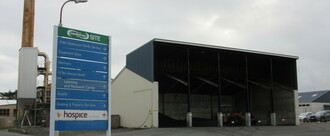


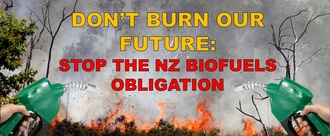
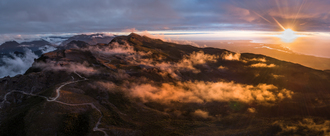
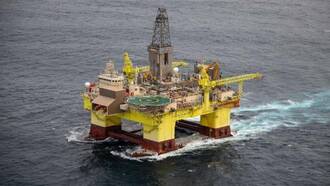.jpg)
